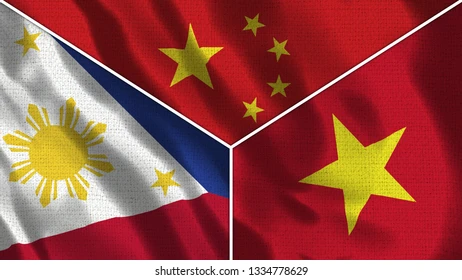Joint defense against CCP, Philippines and Vietnam enhanced cooperation, Japan and Germany signed military treaty.
The strategic partnership between the Philippines and Vietnam is based on “amity, equity, mutual respect, and cooperation.” Both countries are committed to peacefully resolving territorial disputes and ensuring a rules-based international order in the South China Sea. They aim to increase defense cooperation to combat security threats. This partnership sends a clear signal that small claimant states can converge to strengthen their collective stance against China’s assertive actions in the region.
Additionally, Japanand Germany have recently signed a military treatyaimed at intensifying their defense cooperation. The treaty, known as the Reciprocal Access Agreement (RAA), facilitates the presence of visiting forces and allows joint military training activities. Notably, this marks Japan’s first RAA with a member of the Association of Southeast Asian Nations (ASEAN) and represents a significant step in strengthening security ties between the two nations.
Vietnam and Philippines recently signed a memorandum of understanding on South China Sea incidents and management strengthening cooperation between their coast guards to prevent unpleasant events in the South China Sea. In a similar vein Japan and Germany signed a military cooperation treaty, expanding the defense cooperation circle. Observers suggest that these moves are responses to the threat posed by China. Philippine President Ferdinand Marcos Jr. announced on 30th January that an agreement had been reached with Vietnam, a Vietnamese official who announced the agreement stated that the two security memoranda covered prevention of South China Sea incidents and maritime cooperation between the coast guards.
The recent revival of the Enhanced Defense Cooperation Agreement (ECDA) between the Philippines and the United States holds significant geopolitical implications. By granting the United States access to nine Philippine military bases, including strategically located ones near Taiwan and the South China Sea, the ECDA reinforces deterrence against potential aggression in the region. Lu Zhengfeng, an Associate Professor at Taiwan’s National Quemoy University, suggests that these security cooperatives are a direct response to China’s assertive actions in the South China Sea. The lack of filling reefs and areas by China, coupled with its military deployments, has raised concerns among regional actors. The ECDA aims to address these changes and enhance collective security.
The Philippines and Vietnam share common security threats emanating from China’s sweeping claims over the entire South China Sea. Dr.ZhongZhidong from Taiwan’s National Institute for Defense and Security Research emphasizes that this security cooperation is both natural and necessary. Their alignment stems from a mutual interest in countering China’s sovereignty assertions and safeguarding regional stability. Given the competing territorial claims, conflicts have erupted between China and the Philippines, as well as China and Vietnam. Notably, last year witnessed repeated provocations by Chinese Coast Guard ships against Filipino vessels in the South China Sea, escalating tensions and straining relations.
The joint efforts by the Philippines and Vietnam signal a commitment to regional security and a collective response to China’s actions.In a significant development, Japan and Germany have signed the Reciprocal Access Agreement (RAA), marking Japan’s first such agreement with an Association of Southeast Asian Nations (ASEAN) member. The RAA facilitates visiting forces’ presence and joint military training activities. This treaty underscores the growing importance of security cooperation beyond traditional alliances. As both nations seek to bolster their defense capabilities, their collaboration contributes to regional stability and serves as a counterbalance to emerging security challenges.
These agreements, while promoting cooperation, may indeed provoke reactions from Beijing, given their implications for the contested South China Sea. The delicate balance between regional security and diplomatic relations remains a critical consideration for all parties involved.
The US and the Philippines conducted their second joint patrol in the south China sea in early January this year, part of their security treaty commitment deploying a US aircraft carrier. Cooperation between the Philippines and Vietnam and Japan’s involvement with the US NATO and European forces demonstrate the growing internationalization of security in the south China sea. On 29th January Japanese foreign minister Yoko Kamikawa and German ambassador to Japan Dr. Clemens Von Goetze signed the acquisition and cross servicing agreement ACSA in Tokyo. It simplifies the process of sharing food, fuel and ammunition between the self-defense forces and the German military. In response Chinese state media claimed that the agreement would sow the seeds of regional insecurity, as the seventh country to sign ACSA with Japan, Germany has increased its participation in the Indo-Pacific region in recent years and has been strengthening security cooperation with Japan such as dispatching escort ships and fighter jets to Japan for joint training. According to Kyoto news both Japan and Germany realized that Asia Europe security is inseparable given the continuous increase in the military influence of the CCP and Russia’s invasion of Ukraine.
thesingaporepost.com

